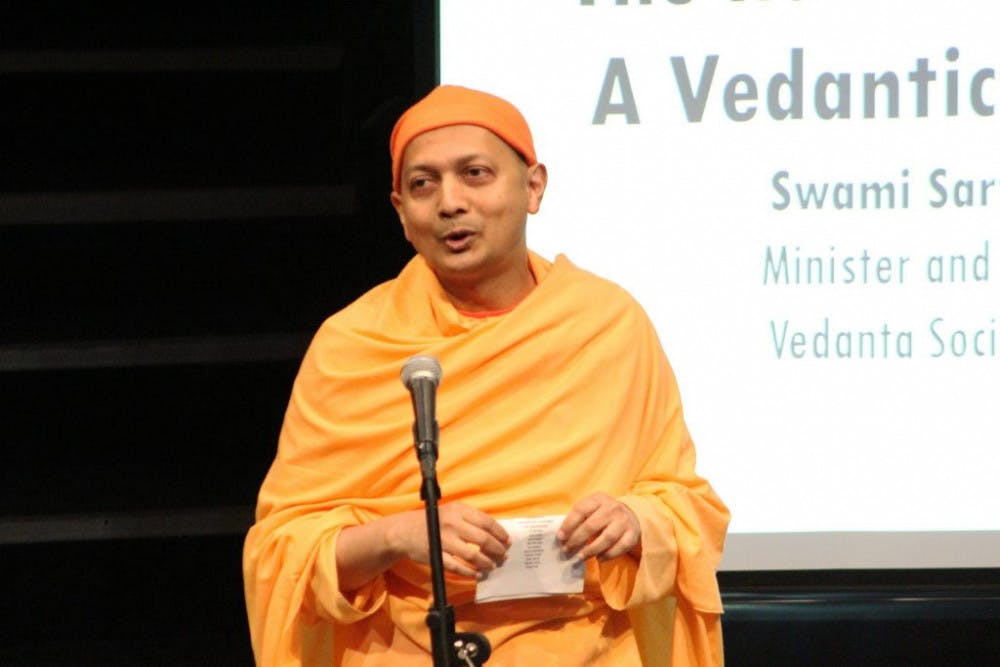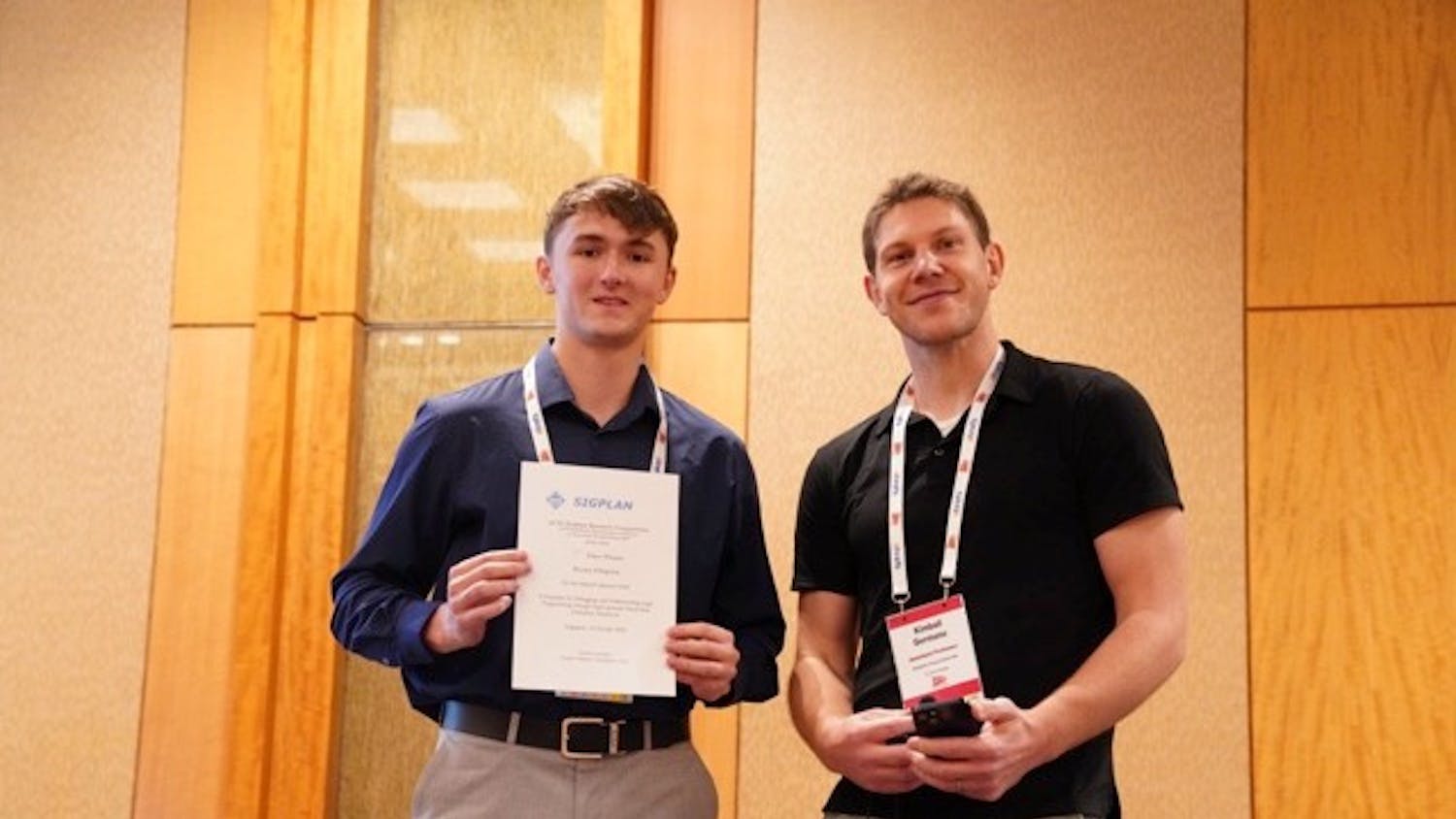For the first time in its 163- year history, Seton Hall University held a public lecture given by Hindu dignitary Swami Sarvapriyananda on Thursday afternoon in the Theatre-in-the-Round. Sponsored by the Institute for Communication and Religion and the Department of Religion, the event called, “Religious Harmony: Community, Communication, Collaboration,” emphasized the necessity of finding synchronicity between various religions such as Hinduism, Buddhism, Islam, Judaism, and Christianity.

Swami Sarvapriyananda, minister and spiritual leader of the oldest Hindu organization in the entire west, the Vedanta Society of New York, is known for spreading the teachings of Hinduism worldwide. In fact, Sarvapriyananda has several viral videos online that have generated more than two million views.
In an interview with The Setonian, Sarvapriyananda discussed the essential purpose of his work: to spread the philosophies of Hinduism which he believes should be shared with everybody.
“We live in a world in which we have different religious communities,” Sarvapriyananda said. “The sad thing is that religion, no matter how beautiful it is, can also be the site of violence and hatred, and so there is a need for people of different religions to understand it.”
He stressed that an individual or group’s negative connotations against a certain religion is typically derived from general misunderstanding, ignorance and an overall lack of awareness. He continued to describe the societal tendency to separate the “in-group and the out-group against those who are different,” and the egocentric consequences this habit can inflict.
“We tend to be automatically suspicious and dislike people who are different from us,” he said. “The more we interact, the more we discuss, the more we’ll realize the commonalities and the wonderful differences, too.
Harmony in religion is so essential in this media age of instant reactions.
Knowledge is our only anecdote against ignorance and violence.”
Sarvapriyanda believes that instead of discussing difference, we should work together within a variety of churches and religions to do good for people. He suggests that as a united front, we can all do our part to “blend people in community” by performing simple acts such as building homes and operating a soup kitchen.
Dr. Jon Radwan, the director for the Institute for Communication and Religion, said in a separate interview with The Setonian that the Hindu perspective “is not alien to the Catholic perspective.” Radwan referred to the Hindu book taught to undergraduate students in CORE 1101, the Bhagavad Gita, which is a non-Christian perspective most students have been acquainted with on campus.
Radwan noted the importance of acknowledging the religious beliefs of others that are different from our own, which is essentially a contributing factor to the structure of the Seton Hall curriculum.
Radwan agreed that though religion could be seen as a source of intolerance, through learning from one another we’ll start to see commonalities. He said that understanding others’ religious views is the first step towards finding “common ground.”
“Look at the alternative,” Radwan said. “What if we don’t do this, what if we don’t learn about our neighbors, what if we… build bigger walls? If you build them big enough you block out the sun, and you wither away.”
He referenced Nostra Aetate, another non-Christian text taught in CORE 1101, which states that, “Through dialogue and collaboration with the followers of other religions, carried out with prudence and love and in witness to the Christian faith and life, they recognize, preserve and promote the good things, spiritual and moral, as well as the socio-cultural values found among these people.”
Fundamentally, both Sarvapriyananda and the academic leadership of this university stressed how religious and cultural acknowledgment is necessary in order to reach integral acceptance in society. They affirmed that regardless if one is praying to Vishnu, Siddhartha Gautama, Allah, Adonai or Jesus, that we all share a purpose to help one another and to live in the light of knowledge.
Caitlin Gartley can be reached at caitlin.gartley@student.shu.edu.





